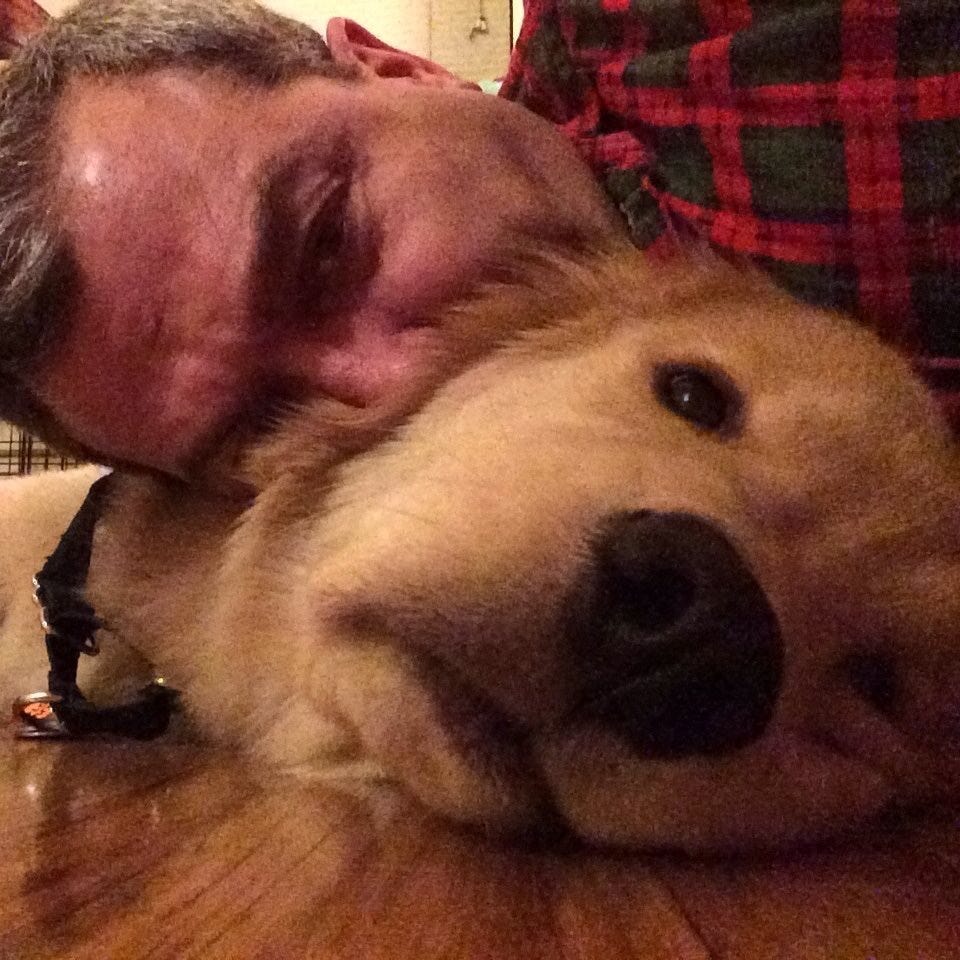Shame too, and the Cure: maybe there is no cure
Everything changes, Panta rhei and Archimedes screw
Here: Archive of past poems, essays, and excerpts
About 7 minutes:
I'm back again, at least in one of the annexes of my memory, because of the rain, which makes the rivers flow. The river flows, Panta Rhei, meaning Everything changes.
Observing my wannabe engineering, a Vortex Turbine I installed in the run-off stream bordering a ma’oz, my (strength), a redoubt where I retreat, a place that is mired in a national forest, at the base of a twin-summit mountain which in native Ute means “ancient mountain heart sitting there,” which in French is:
“Ancien Coeur de montage assis ici”
I think I may also be an old mountain heart. Redoubt also descends from the French reducer: to lead or draw back (not drawback). And, from redouter; to fear greatly and from Latin: re- back, dubitare. to doubt.
My turbine, shaped exactly like Archimedes’ screw, which, pictured below, is the progeny of Archimedes Constant (you know, π, ):
So, if you click the link, you will see that when it rains,, or when the snow melts, as snow does continuously not at elevation, I need less of you:
less power,
less connection,
less news,
less autocracy,
less of your self promotion;
and, less unrelenting perfection,
As when Archimedes discovered that a constant between circumference and diameter never changes, and when the river flows, or my stream, I can sincerely say:
“Screw you”
Which reminds me of Baby the Leopard, I mean. And the power of letting things run their course, like rivers, untruths, partial ones, and lies accumulate because no one is perfect. But the perfect person believes in their perfection and that their lies will never be discovered; and, some simply do not care if they are found out.
No. Wait.
If you want to wet yourself, here is Susan, “walking Baby,” because she is certain she has the right cat. Because she, of course, can tell a leoard by its spots.
Susan is sure:
“You thought I was doing the wrong thing, but I’ve got him.”
Except for those who look at themselves in the mirror and cannot bear to admit their imperfections, they wear masks and lie to the rest of us because the shame of admitting imperfections is unbearable to all, and a few don’t care.
They are never wrong until the river goes dry. Remember Archimedes Spiral? The old screw pump he found while vacationing in Egypt?
I will circle back. Baby first.
Archimedes Screw
In Bringing Up Baby, the more David, (“David, they found it the intercostal clavicle!”) wants Susan to “go away,” the more Susan seems to not want to or be able to go away.
Susan and David are searching the forest for David’s lost fox terrier when they come across the dog playing with “Baby,” Susan’s tame leopard.
Like all dogs, the dog has absconded with the ancient intercostal clavicle bone of a brontosaurus.
David, a paleontologist, and Susan, an imp with a patrician accent and a dusky voice, played by an imp-ish patrician with a dusky voice, see Baby and the pussycat playing. They are in a clearing across a small stream, like the one that borders my redoubt, but still waters. You can see where this is going, but maybe not.
Susan leads David to the water’s edge because don’t all patrician imps do that?
She knows, with certainty, that she has crossed this stream at this very spot often, so Susan steps into the water with certainty (you better click the link). Susan is never wrong.
Neither drowns; there is no tide or any Moses, Susan, like Nachson, who jumped first into the Sea, just leaps into the water, knowing she is right.
Susan is always right. As are all Susans.
Just unexpectedly, a deeper stream: “The riverbed’s changed,” exclaims Susan.
“No Susan,” David says, we’re right back where we started, just wet.”
The riverbed’s shift, like The Law of Unintended Consequences, according to Robert Merton, has five possible causes:
Ignorance makes it impossible to anticipate everything, thereby leading to incomplete analysis.
Errors in analysis of the problem or following habits that worked in the past but may not apply to the current situation.
Immediate interests override long-term interests.
Basic values may require or prohibit certain actions even if the long-term result might be unfavorable. Long-term consequences may eventually cause changes in basic values.
Self-defeating prophecy, or the fear of some consequence, drives people to find solutions before the problem occurs; thus, the non-occurrence of the problem is not anticipated.
Susan stepped into it, which was the stream, believing the stream’s flow of water changed nothing.
Panta rhei, “everything flows,” wrote Heraclitus. Everything is constantly changing.
Wolves, as can rain and snow, can change rivers just by being there.
Wolves never lie to each other, but their shepherds do.
And there are always unintended consequences.
Wolves know this; wolves change the riverbed. Wolves never lie to each other:
I look up at the now white-tipped mountain above my Ma’oz, my retreat, and I say very quietly:
“I know that I am not so bad after all, what if I am wrong?”
About a lot? Because I know I have been. And suffered the unintended consequences.
There is no fear admitting I am wrong; I am well practiced, feel no shame in it, and never have.
On Friday night, April 11th, I will remember the twenty years of missing the man who had no shame in a house led by the consequences of what shame can do to leaders who, like Susan, can admit no wrong.
The destructive potential of shame, not only on the sufferers but also on their friends and family, is not a mystery.
Silence does not help. Shame does not pack itself up and walk away. Nor does shame.
Not so long ago, I admitted to myself, that I had caused pain, and behaved badly but I also knew that I was not the first person to hurt people and make large mistakes, knowing that others have, and will do the same. I told myself again and again: I am doing my best.
I had not, but I also knew that I was not a bad person which is what shame makes its victims feel about themselves.
Every person is a quagmire of errors.
Choosing solitude by intent, I was never afraid of being alone, though losing people was very hard, as the upfront cost of finding new people is high for a divergent introvert. I also had figured out that no one likes being alone, and loneliness and solitude were not the same. Unimpeded solitude does not cure shame, especially for those with a frantic fear of being alone.
Yet it has rewards:
“Solitude makes us tougher towards ourselves and tenderer towards others. In both ways it improves our character.”(Nietzsche)
Solitude is not loneliness.
One can die of the latter, but solitude teaches you to love yourself more, so if well used, time to yourself can help vanquish shame. No doubt, grief and memory will always outsmart us, and loneliness takes a long time, but shame can be forever if not addressed. A good dog teaches his human tenderness: gentleness and affection together. Dogs seem to be born with that sensitivity, especially to someone else’s pain.
We may sometimes confuse shame with guilt, a related but very different emotion.
Guilt is a feeling you get when you did something wrong, or perceived you did something wrong. Shame is a feeling that your whole self is wrong, and it may not be related to a specific behavior or event.
Shame is a scar that resides in your mind and is usually invisible to others, or it exudes as something else.
What is shame but a plea for tenderness? But, from others? Or, more urgently, from oneself?
Recognizing the immobilizing fear of hurt, rejection, and abandonment at the heart of avoidance, I know. I saw it in others long after I had repaired myself. You never lose that feeling, and you just learn to put it in a box and place it on a shelf, a cousin to grief.
Losing shame can be a lifelong war, or it can induce the memories of one, and those battles create avoidance, more frantic fear of abandonment, and a dereliction of the joys of intimate relationships, difficulties with trust, the benefits of sharing pain which is the kernel of intimacy, and the cement of friendship.
Waiting for you
Roses take their time, and they take your time, too, as does tenderness. Each rose grows alone. One rose at a time.
What dogs know intuitively, humans learn best in solitude: that tenderness is gentleness and affection, together, with pain sensitivity, especially to someone else’s pain. But being alone is Torquemada's vengeance if you cannot love yourself.
A rose is very sensitive. They feel everything: your tension, understanding, kindness, and, yes, how gentle you are with them. No matter how many times they stab you, the only response has to be tenderness.
Roses remember everything.
My roses and I are no longer alone. Now, my lack of solitude is odd for someone who found comfort in it.
Still, if you are constant, when you are far away from your rose garden, you remember it with affection because of all the hard work you have behind you, already in the ground.
The result is the colors and overwhelming scent. Everything has to be just right—sun, humidity, moisture. You have to be tender with your rose; it feels pain.
Friends in need, the ones struggling with shame, are roses, too. They need help, but mostly to learn how to stand alone and remember and receive tenderness.
The ones who don’t care deserve distance; it's more of a challenge for me.
“Stand By Me,” sung live one night, by Tracy Chapman, because I can sing.
“No, I won’t be afraid, Just as long as you stand, Stand by me.”
You have to learn to stand by yourself and “the other” too, even when they disagree with you:
And I have, and I will.
No longer will I tolerate the consequences of others whose shame precludes them from admitting error, and I do not care because I cannot be responsible for someone else who will not forgive themselves and continue to harm others.
Plus, we had a lot of snow, so the runoff will power the house, “rain or shine,” it won’t kill my fish, and as there are few moving parts, I can add another and another, and another. There's no shame in that. No shame in thinking, in silence, as I watch the screw turn:
“Archimedes you, rabbi”
Some things need not be said aloud in someone else’s house.
We will just be voting away, in, and for unity, where we never say “I”, but always “we,” which always includes everyone else, where my pain is your pain, my mistake is your mistake, where I can help her heal, and their problems are my problems. And I will never look away, even if she disregards my pain.
Did I say it’s a huge mountain?
So, If:
“If you can keep your head when all about you
Are losing theirs and blaming it on you,
If you can trust yourself when all men doubt you,
But make allowance for their doubting too;
If you can wait and not be tired by waiting,
Or being lied about, don’t deal in lies,
Or being hated, don’t give way to hating,”
—Rudyard Kipling
Chag Pesach Sameach and a joyful Easter Sunday.
©Philippe du Col, 2025












